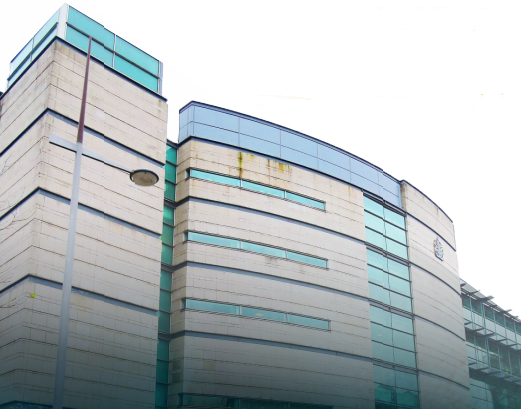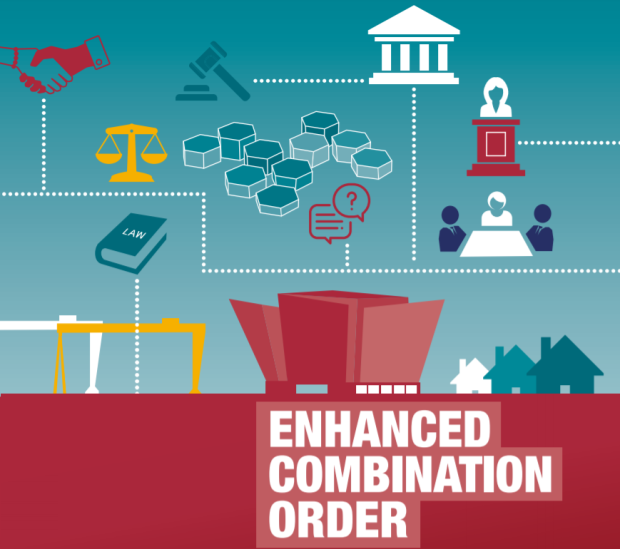Problem Solving Justice is an approach aimed at tackling the root causes of offending behaviour and reducing harmful behaviour within families and the community. The draft Programme for Government and subsequent Outcomes Delivery Plan sets out the importance of a problem solving approach. The Department of Justice lead in this area and PBNI is responsible for delivering on a number of problem solving initiatives which are set out below.

Substance Misuse Court
The ‘Substance Misuse Court’ (SMC)- was launched at Belfast Magistrates’ Court in April 2018.
The primary aims of the SMC are to reduce reoffending and substance misuse among participants and to facilitate their rehabilitation. A multi-agency Supervision and Assessment Team (SAT) delivers medical and other services as part of an individually tailored intervention package. The SAT comprise of Probation and Addiction NI staff. Work carried out includes detailed assessment, motivational work and Assessment Report preparation. The participant’s progress and any risks they pose to the public is monitored and reported back to the court. Participants will remain under the supervision of a judge throughout the entire process.
More information and guidance on the Substance Misuse Court process can be found via the following leaflet: Substance Misuse Court leaflet (PDF)
The Centre for Justice Innovation have produced a guide providing an overview of problem-solving court practice throughout the United Kingdom for practitioners and policymakers working in or seeking to develop problem-solving courts.
Probation's Substance Misuse Court initiative is highlighted in the publication as a case study. You can find their publication "Problem-solving courts: A guide to practice in the United Kingdom" on their website
Domestic Abuse
Probation is centrally involved with two multi agency Domestic Violence and Abuse projects to deliver Problem Solving Justice and provide early intervention in tackling the underlying causes of offending behaviour. Both projects are funded by the Department of Justice and link to Indicator 1 (reduce crime) under the Programme for Government, which recognises the need to reduce crime by addressing its causative factors through prevention and detection.
The projects are the pilot of the Domestic Violence Perpetrator Programme (DVVP) and the Unadjudicated Domestic Abuse Programme, for more information on these projects please visit the Programmes section.
Enhanced Combination Orders

Research shows that short-term prison sentences are less effective in addressing offending behaviours than community-based disposals and that more than 50% of offenders sentenced to a short prison term will re-offend. The Lord Chief Justice therefore requested that the Probation Board for Northern Ireland (PBNI), develop a demanding community sentence as an alternative to the high number (88% at May 2015) of prison sentences lasting less than 12 months. Based on existing legislation and known as the Enhanced Combination Order (ECO), ECOs offered Judges a community option in a more intensive format.
Piloted in the Ards and Armagh & South Down Court divisions since 1st October 2015 and extended to the North West in October 2018, ECOs focusses on restorative practice, desistance and victims, with service users also required to complete unpaid work within their local communities. Those with mental health issues were assessed by PBNI psychologists, with a treatment plan or referral to an appropriate health provider then forming part of the intervention. Where appropriate parenting/family support work and accredited programmes were also part of the order.
In June 2017, the Northern Ireland Statistics & Research Agency (NISRA) published its evaluation of the ECO pilot. The evaluation focussed on the period up to March 2017 during which 136 offenders had been made subject to ECOs. The evaluation concluded that the qualitative and quantitative evidence showed that the initiative had been successful in achieving its aims.
NISRA have now published a follow on evaluation, which is based on work up to the end of November 2018, which encompasses 295 people who have been made subject to an ECO. This evaluation is similarly positive.
The full Evaluation report can be viewed via the following link: Enhanced Combination Order Pilot Evaluation Report 2019
The Department of Justice also commissioned an independent Economic Appraisal of ECO from the Ulster University Policy Centre. In May 2019, they published “Problem Solving Justice – The Economic Impact of Enhanced Combination Orders (ECOs)“. The researchers concluded that “the economic impact of ECOs and the net economic benefit if they were to be rolled out to all court districts in NI. In summary, this impact assessment identifies an expected net benefit of £5.7m to £8.3m per year in the event of rollout.”
In addition to the economic benefits the Appraisal Report also said “ECOs may be expected to transform the lives of offenders’ families and, in particular, the life-chances of their children via reduced probabilities of entering poverty and intergenerational offending cycles.” and that “the wider community may experience benefits as a result of improvements to the local environment as integral elements of ECOs, or over the longer term through reduced propensity for anti-social behaviour.”
The evaluations of the ECO initiative have shown the orders have been successful in achieving their aims. To follow this up a review was undertaken early 2022 by Northern Ireland Statistics and Research Agency (NISRA) staff to examine how much has been accomplished between October 2015 and December 2021, the learning from delivering the Court Order and the impact that it has had on service users. Read the evaluation online.
Enhanced Combination Order Case Studies
Short term prison sentences can have an adverse impact on family relationships, employment and housing. They are also unable to facilitate the time needed to address mental health issues and addictions. PBNI therefore developed a demanding community sentence as an alternative to short prison sentences (12 months or less). Based on existing legislation and known as the Enhanced Combination Order (ECO), ECOs offer Courts a community based sentencing option in a more intensive format. It is currently available in two Court areas.
ECOs focus on targeted interventions, restorative practice, desistance and victims work, with service users also required to complete unpaid work within their local communities (Community Service). Every person subject to an ECO is assessed by PBNI psychologists, with those who need it receiving a bespoke mental health intervention. Where appropriate parenting/ family support work and accredited programmes are also part of the order.
ECOs use a multiagency approach and PBNI have developed partnerships with a range of organisations including Barnardos, Community Restorative Justice Ireland (CRJI) and NI Alternatives. As well as Probation Officers (POs), ECOs involve Probation Service Officers (PSOs), Community Service Officers and PBNI Psychologists.
The initiative has been embraced by the Judiciary and the number of short custodial sentences imposed by courts in which ECOs are available decreased by over one fifth. This reduction in custodial sentences, with the resultant decrease in tax payer costs, was identified as a major benefit of the project. This community sentence provides value for money and positive outcomes.

This booklet will demonstrate the difference that the Order is making to people’s lives.
Inspire
It is recognised that the circumstances of women’s offending tend to be different from the circumstances of men’s offending. The problems associated with female offending are often complex and involve poverty, homelessness, mental illness, abuse, domestic violence and addictions, as well as significant numbers of female service users also being victims themselves. PBNI’s regional INSPIRE team, therefore, develops and delivers an enhanced range of gender-specific services which contributes directly to reducing women’s offending through targeting community-based interventions.
The women who come into contact with Inspire staff are challenged to take responsibility for their actions and are assisted to get their lives back on track. It is clear that the work of Inspire is making a real difference to families throughout Northern Ireland.
INSPIRE provides:-
- Probation supervision for women who offend subject to community supervision and post release licences.
- Pre-sentence assessment reports for courts.
INSPIRE provides a gender responsive model for women subject to Probation supervision. A range of interventions are provided by Probation staff and partner agencies including the Thinking Skills programme, a Home Office accredited cognitive behaviour programme for women who have more than three previous convictions, alcohol and anger management programmes and drug counselling, which are delivered by both probation staff and a range of other support programme providers. Partner organisations include NIACRO, Start 360’s Engage programme, Social Services, Women’s Aid, Inspire wellbeing Service and many other community resources.
Aspire
The Aspire project, led by the Probation Board for Northern Ireland (PBNI), working with the Northern Ireland Association for the Care and Resettlement of Offenders (NIACRO) and other voluntary and community sector groups, was launched in 2017.
Some 502 young men, aged between 16 and 30, who are marginalised in communities and at risk of becoming involved in criminality have been accepted on to this project. The project Is collaborative combining restorative practices and peer mentoring with targeted support in relation to employment, training, housing, poor mental health and addictions issues. The evaluation has now been published.
Find out more on NI Direct at Problem Solving Justice